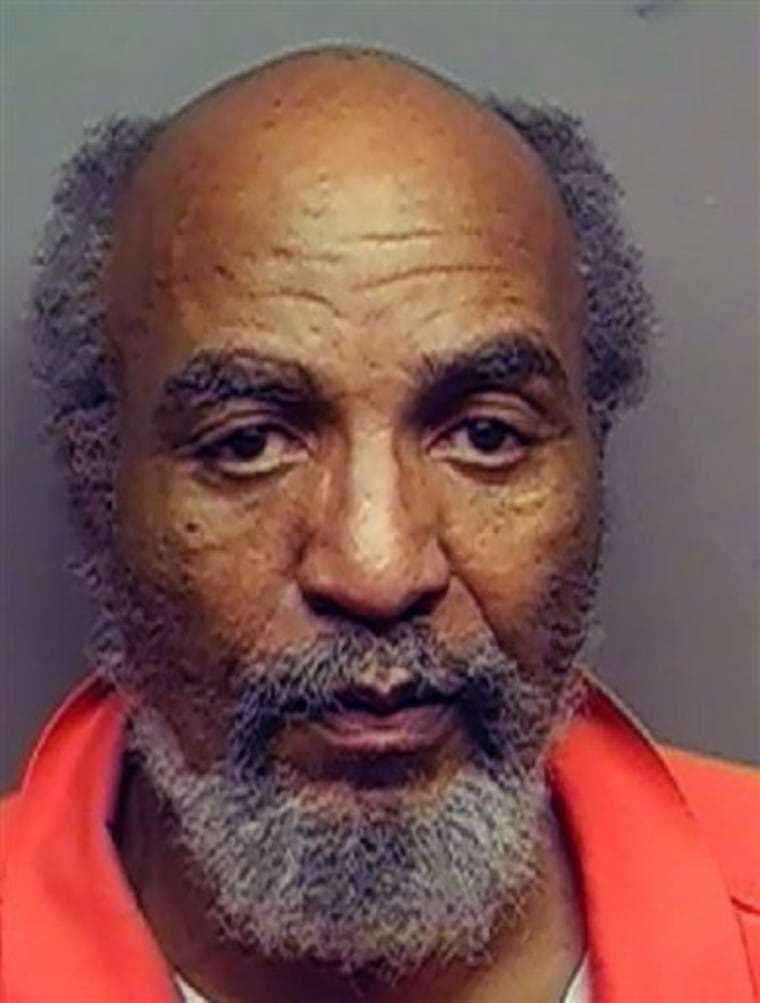Jurors at the incest trial of civil rights leader James Bevel listened to an hour-long recording of a phone call in which he appeared to offer a convoluted defense of a sexual encounter with his daughter.
In the phone call between Bevel and his daughter, Bevel never made an explicit admission that he had sexual intercourse with his daughter. She testified Tuesday that he had sexual intercourse with her when she was 15 in the early 1990s after he pressured her by saying the sex would relieve him from demons that were sapping his strength.
Bevel, a top lieutenant to Martin Luther King Jr. who later was credited with helping conceive and organize the Million Man March, was arrested in June and charged with incest with his daughter while the two lived in Leesburg.
After his arrest, prosecutors said they received calls from across the country from women who said the were victimized by Bevel.
Jurors hear taped call
During the phone call heard Tuesday in Loudoun County Circuit Court, Bevel refers to "our interaction" and seems to blame the daughter at various times for weakness by refusing to resist him.
"You ain't made the decision not to (fornicate)," he told his daughter in vulgar language. "You can't know who you are until you decide not to (fornicate)."
At another point in the conversation, Bevel says the encounter increased his knowledge of how men and women interact, and improved his ability to teach others about proper marital relations.
"I want to thank you for contributing to the body of knowledge," Bevel tells her in the October 2005 conversation, which was recorded by the Leesburg Police Department.
Bevel says during the call that it's his duty to teach the world the difference between "emotional-sexual romance and constitutional intimacy."
During the call, Bevel constantly compares his actions with his daughter to his actions in the 1960s, when he was a leader in the drive to desegregate the South. Frequently when his daughter asks a question, he responds by asking her about his efforts during the 1965 march in Selma, or his confrontations with notorious Birmingham lawman Bull Connor.
In trial testimony Tuesday, the daughter and two of her half-sisters testified that the family confronted Bevel in 2004, concerned that a young daughter Bevel had fathered with a new wife in Selma might be at risk. At the meeting, Bevel said he did not dispute the facts of the daughter's allegation, according to the testimony.
Allegations of past abuse
On cross-examination, though, the sisters acknowledged that Bevel still claimed he was innocent despite his acknowledgment of the daughter's allegations. Bevel said the dispute stemmed from a difference in perceptions, according to the testimony.
In addition to the alleged intercourse when she was 15, the daughter has said that Bevel routinely molested her beginning at age 6.
The Associated Press generally does not identify the victims of sexual abuse. The daughter is one of at least 14 children Bevel has with several different women, according to her testimony on Monday.
In the 1960s, Bevel was a leader in the Southern Christian Leadership Conference (SCLC) and the Student Nonviolent Coordinating Committee (SNCC), two of the stalwart organizations that led efforts to desegregate the South.
In 1992, he was vice presidential running mate to political maverick Lyndon LaRouche, who has a home in Loudoun County but at the time was in a federal prison for a tax conviction.
